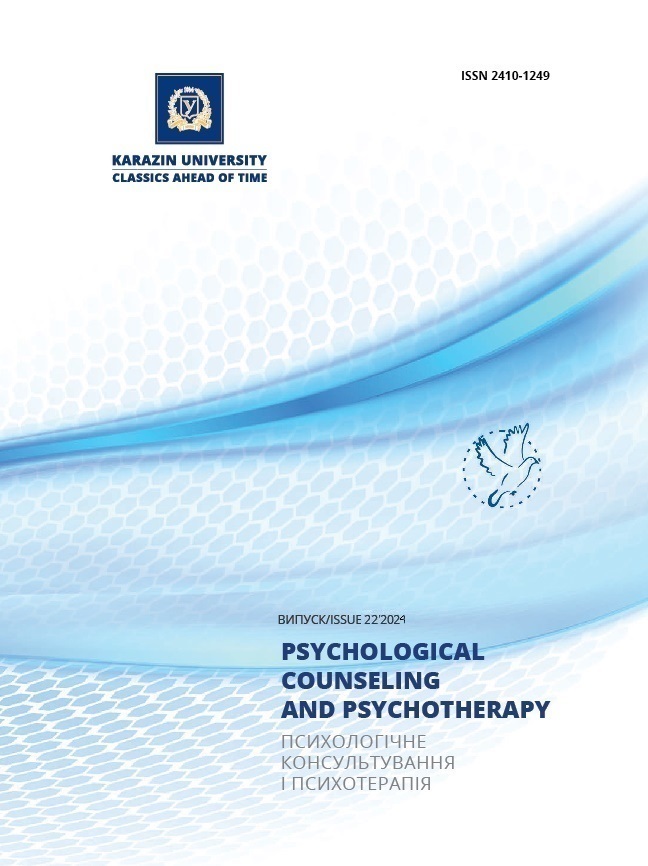Psychological Characteristics of Personality of Psychotherapists Working in Different Therapeutic Modalities
Abstract
Statement of the problem. Psychotherapy plays a key role in the mental health care system. However, the personal characteristics of psychotherapists of various modalities have not been sufficiently studied, which makes it difficult to understand the influence of these characteristics on the effectiveness of therapeutic work. In cognitive behavioral therapy (CBT) an analytical approach is important, while person-centered therapy (PCT) requires empathy and openness. Analysis of the problem Scientific literature emphasizes the importance of such personal characteristics of psychotherapists as thinking style, emotional intelligence, empathy, reflection and interpersonal relationships. Representatives of different therapeutic approaches show significant differences in these parameters. The purpose of the study is to reveal the psychological characteristics of the personalities of psychotherapists who work in CBT and PCT modalities. Research methods - the method of determining the thinking style (A. Harrison, R. Bramson), the test of emotional intelligence and empathy (N. Hall), the 16-factor personality questionnaire (R. Kettel), the method of interpersonal relations (T. Leary). The Mann-Whitney U-test and exploratory factor analysis with Varimax rotation were used for mathematical and statistical data processing. Description of the sample The sample consisted of 55 psychotherapists (26 representatives of CBT, 29 - PCT), aged from 25 to 45 years, with work experience of at least 3 years. Conclusions In the study of psychological characteristics of psychotherapists working in cognitive-behavioral (CBT) and client-centered therapy (PCT), a number of significant differences were revealed. CBT psychotherapists demonstrate a predominantly analytical style of thinking, organization and a tendency towards a directive style of interaction. Instead, PCT therapists are characterized by higher levels of emotional openness, empathy, and cooperativeness in relationships. Factor analysis made it possible to create structures of key personal characteristics corresponding to the specifics of each therapeutic modality. A close connection between emotional intelligence and reflective abilities was noted for representatives of PCT, while for CBT therapists the connection between analytical abilities and the ability for professional reflection dominates.
Downloads
References
Beck, A. T. (2011). Cognitive Therapy of Depression, New York: Guilford Press, 425 p.
Rogers, C.R. (1951). Client-Centered Therapy: Its Current Practice, Implications, and Theory, Boston: Houghton Mifflin. 560 p.
Golman, D. (2019). Emotional intelligence. Why it can be more important than IQ [Emotional intelligence. Why it might be more important than IQ] Kharkiv, Psychologies, 368 p. (in Ukrainian)
Schon, D. A. (1983). The Reflective Practitioner: How Professionals Think in Action, New York: Basic Books, 250 p.
Safran, J.D., & Muran, J.C. (2000). Negotiating the Therapeutic Alliance: A Relational Treatment Guide, New York: Guilford Press, 260 p.
Bryman, A., & Cramer, D. (2011). Quantitative Data Analysis with IBM SPSS 17, 18 and 19: A Guide for Social Scientists, London: Routledge, 400 p.
Klymchuk, V. AT. (2006) Factor analysis: use in psychological research [Factor analysis: use in psychological research] Practical psychology and social work, (8). pp. 43-48. (in Ukrainian)








